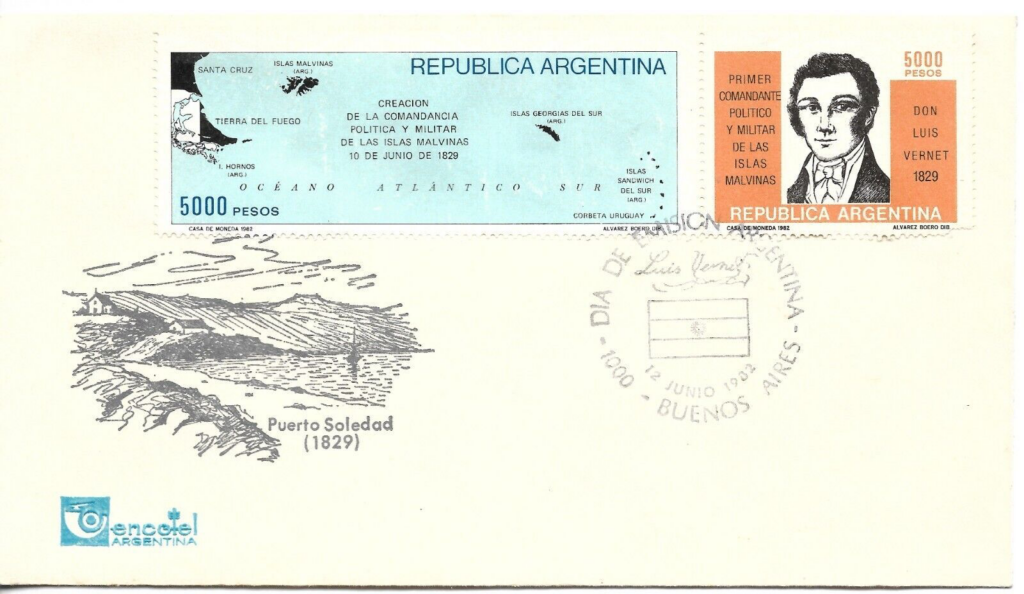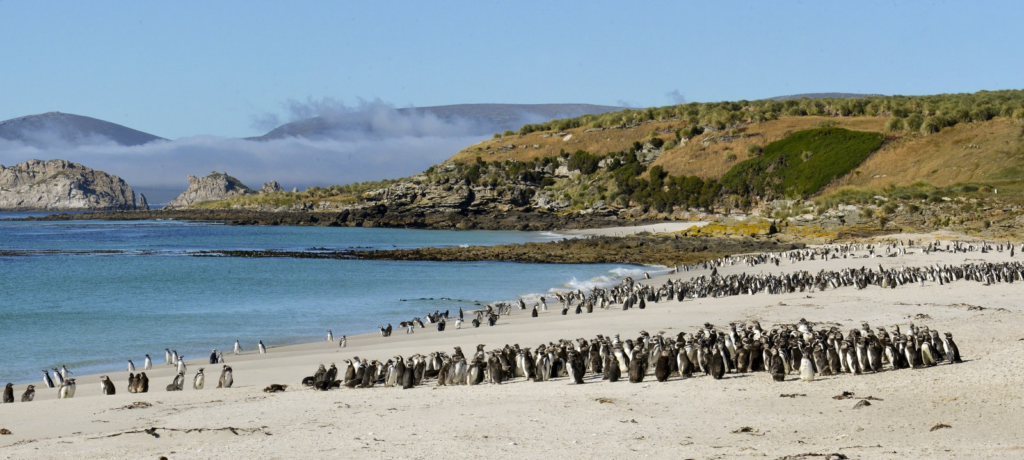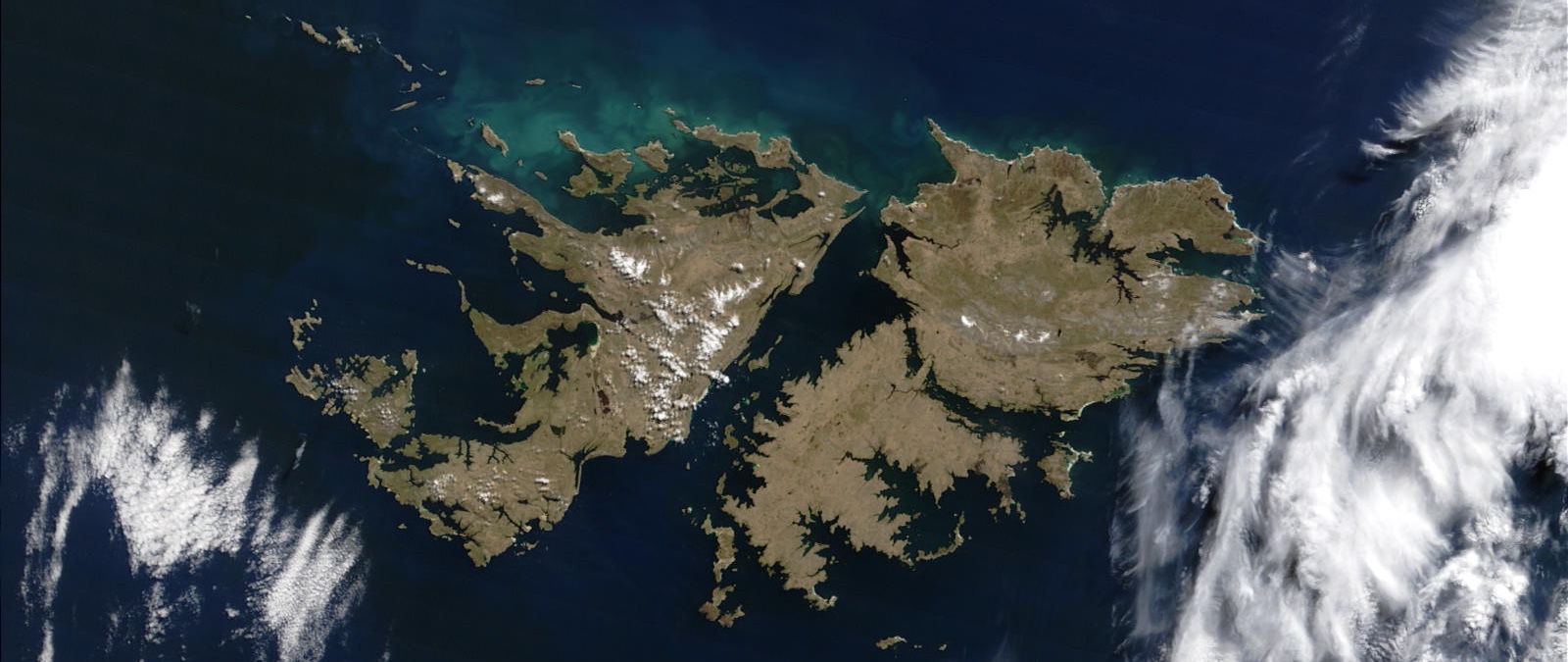| “Self-determination is a fundamental principle of international law, but it cannot be used to breach the territorial integrity of a pre- existing state”. – An article by Marcelo Kohen – |
The right of peoples to self-determination is one of the fundamental principles of contemporary International Law. It is thanks to this principle that numerous subjugated peoples were able to create their own independent states during the decolonisation process over the second half of the 20th century. For long years, the United Kingdom and other colonial powers denied the legally binding character of the principle of self-determination. They only came to recognise its importance in the late sixties, when the independence process of their former colonies had practically come to an end. The UK government did so in an attempt to use its settlers to hold onto those of its remaining colonial outposts existing in breach of the territorial integrity of other states. Argentina, on the other hand, was and is a faithful advocate of the principle. As a state that emerged from an anti-colonial struggle, this fact should come as no surprise. Regarding the Malvinas Question, the British government has two objectives in invoking and distorting the principle of self-determination: to maintain a presence in the South Atlantic region, and to avoid resolving the sovereignty dispute with Argentina which has been ongoing since 1833.
In fact, the United Kingdom has not even attempted to present a reasoned argument to justify invoking self-determination. It takes as axiomatic that the “islanders” have the right to decide the future of their territory, and simply points to the general rules relating to the principle of self-determination. The British authorities never explain specifically why this right of “peoples” might be applicable to the case of the Malvinas. They provide either incomplete or falsified information on the composition of the islands’ population. They simply state that many of the inhabitants can list several generations of ancestors who were born on the islands. They believe that they can compare the situation on the islands with the way in which Argentina’s mainland population came to be formed. They seek to prove that when Great Britain expelled Argentina from the Malvinas by force, only the authorities, troops and their families were evicted, and not the entire population of the islands that had lived under Argentine governance. The lack of rationale, the omissions and the fabrications explain why the United Kingdom has made no serious effort to seek recognition of its position by the United Nations General Assembly or its subsidiary body, the Decolonisation Committee. And when, in 1985, it tried to do so, its proposal was rejected by the highest representative body of the UN.

Britain’s manipulation of the principle of self-determination is abundantly clear for several reasons: 1) because it is the UN General Assembly and not the colonial power that determines how a colonial situation should be ended and the UN’s highest representative body has never applied the principle to the islands’ current residents; 2) because this is a special case of colonialism in which the victim of the colonial action was a newly independent state; 3) because after expelling Argentina, the British government established their own settlers; 4) because since then it has controlled the migration policy of this isolated and sparsely populated territory; 5) because the current residents do not constitute a separate “people” who have fallen victim to colonialism; 6) because the United Kingdom, after having expelled Argentina and established its own settlers, rejected all offers of negotiation and arbitration put forward by Argentina while consolidating its physical presence on the islands. To accept that the British nationals settled there should have the right to determine the Anglo-Argentine dispute would constitute a blatant case of arbitrariness and the imposition of a fait accompli.
In International Law, not all human communities settled in a given geographical location are entitled to the right of self-determination. This is why there is a distinction between “peoples” and “minorities” (be they national, religious, linguistic, ethnic, etc). Whilst the former are entitled to the right of self-determination, the latter are not, even though they are entitled to an array of rights aimed at safeguarding and preserving their cultural identity, although within the territory of the state in which they live. There is also a distinction made for indigenous peoples, whose right to self-determination is recognised by the UN Declaration, although only internally. Nor can a group simply declare themselves to be a “people” and in so doing claim to be entitled to the right of self-determination. Not one of the more than 40 UN General Assembly or Decolonisation Committee resolutions has acknowledged the existence of a separate people in the territory and instead each has proposed other alternatives for decolonising the Malvinas Islands. The United Nations doctrine regarding the means to bring the colonial situation to an end is through negotiations between Argentina and the United Kingdom to resolve the sovereignty dispute, whilst taking the interests of the inhabitants into account. The reason is simple: unlike typical cases of colonialism, where an entire people are subjugated by a European power, in the case of the Malvinas, the greatest colonial power of the times ejected a young independent state from part of its territory; a sparsely-inhabited isolated territory with no native population.
Unlike what occurred in other regions across the world, such as the Caribbean, where the colonial power introduced a massive slave population, leading to the formation of new peoples, in the case of the Malvinas, the limited population brought in by the British government were British settlers. At the same time they resolutely refused to hold discussions with Argentina despite the latter’s protests, in a clear example of the policy of “might is right”.
A brief analysis of the demography of the islands clearly reveals the artificial nature of Britain’s claim that the settlers constitute a separate people and are thereby entitled to self-determination. In 1851, 18 years after the seizure of the islands, the total population was 287 –roughly the same number of inhabitants as there was at the height of the community’s development during the period of Argentine administration towards the end of the 1820s. For a century, the number of inhabitants remained between 2,272 in 1911 and 2,841, according to the latest census in 2012. There were peaks, as in 1931 (2,392 inhabitants), and after generally remaining stable, this figure began to decline in 1962 (2,172 inhabitants) reducing to 1,813 inhabitants by 1980. Following the war in 1982, the population grew by almost a third in just thirty years. The reason for this was the economic boom produced by the granting of fishing licenses. These figures demonstrate that the demographic growth of the population is not natural. The number of inhabitants on the islands is essentially dependent upon the economic and administrative needs of the colonial power. The population primarily comprises civil servants of the Crown, landowners and business men and women. Today, the second major “village” on the islands is made up of the civilian staff at the Mount Pleasant military base. They represent 15% of the islands’ population. The less well paid jobs are done by immigrants from Chile and Santa Helena. And yet the British citizens alone have the right to vote. Added to this there is also discrimination towards the Argentine citizens. Immediately after the end of the 1982 war, the resident Argentine citizens working for the fuel and transport provision services were expelled. For 17 years Argentine passport holder were banned from the right to visit the islands, even as tourists. An unwritten law prohibits Argentines from owning real estate, to the extent that those inheriting such properties were forced to sell them.
The manipulation of the latest census is blatant. As the majority of the inhabitants were not even born on the islands, the British authorities did not provide this information initially. In place of this, they provided information on how individual islanders identified themselves in terms of their “national identity”. The “result” was that 59% responded “Falkland Islander” and 29% “British”. This clearly shows that many of those who define themselves as “Islanders” are in actual fact British citizens having arrived from the United Kingdom. Indeed, many of them are the supposed “spokespersons” for the inhabitants, either as governmental or legislative representatives or as opinion makers in the islands’ media.

Another pertinent fact that the censuses regularly reveal is that about 40% of the population has been living on the islands for fewer than 10 years. We can scarcely speak of a “people” thus formed, with a population that is largely on the islands only temporarily.
There are many territorial conflicts around the world, many of them about inhabited territories. Some were settled by the International Court of Justice. The Court has determined the sovereignty of such territories on the basis of the legal titles presented by the parties, and not on the nationality or wishes of the inhabitants. In the El Salvador/ Honduras case, some 10,000 to 30,000 Salvadorians found themselves on the Honduran side of the border drawn up by the ruling. Following the Cameroon v. Nigeria case, over 100,000 Nigerians now live in territory that the Court recognised as Cameroonian. The Court did likewise in its latest territorial ruling between Burkina Faso and Niger. In all of these instances, the Court reminded the parties of their obligation to respect the rights of the inhabitants of the disputed territories, although it never left its decision up to the will of said inhabitants. There are also other relevant examples. Following the First World War, France argued that holding a plebiscite in Alsace-Lorraine was not appropriate given that since 1871 –the year of the territory’s handover to Germany– thousands of French citizens had opted to leave rather than be subject to German sovereignty, while thousands of Germans had settled there. When the Swedish population of the Äaland Islands, under Finnish sovereignty, claimed self-determination to join Sweden, the response was to grant a far-reaching autonomy, whilst nonetheless maintaining Finnish sovereignty.
The situation with the Malvinas is also different from that of Scotland. Nobody denies that Scotland is British. There is nothing precluding the central government of any state from allowing one of its constituent parts from declaring itself independent if its inhabitants so wish. But there is no international obligation to do so on the basis of the right of peoples to self-determination. The British stance vis-à-vis Scotland is not the same as that of Spain regarding Catalonia or France regarding Corsica, for instance. In the case of Scotland, there is no sovereignty dispute between the United Kingdom and another state. In the case of the Malvinas, there is. If the United Kingdom wants its citizens to determine the future of the territory in which they live, the territory should be British. On the contrary, there is a dispute as to its sovereignty with Argentina. According to Dame Rosalyn Higgins, former British judge and former President of the International Court of Justice: “Until it is determined where territorial sovereignty lies, it is impossible to see if the inhabitants have the right of self-determination’‘ 1.

The British argument for self-determination in the Malvinas case is also seriously undermined by the United Kingdom’s blatantly contradictory policy. There was no “self- determination” when it expelled the 2,000 native inhabitants of the Chagos archipelago. There was no “self-determination referendum” when Margaret Thatcher’s government restored Hong Kong to China, its legitimate owner. Less still was British citizenship granted to the five million Chinese living in the territory, as the very same government had done with the 2,000 Malvinas inhabitants of European origin at the same period. In other words, self-determination is a flawed argument for retaining one of the last remaining outposts of the British Empire, without any legal justification whatsoever.
For these reasons, the referendum held on 10 and 11 March 2013 by the British government to enable British citizens to affirm that they want the territory in which they live to continue “being” British has no relevance. Despite the colossal diplomatic lengths that David Cameron’s government have gone to, only one state reacted positively to the British move: Canada. As far as the United Nations are concerned, the territory continues to be subject to decolonisation.
Naturally no one denies that the Islanders have their own traditions; many of which, incidentally, they hold in common with the continent. Rural traditions (they call the countryside “the camp”, from the Spanish word “el campo”), especially those relating to horses, the use of the term “che”, and even until recently the taste for mate are reminders of a past that was considerably influenced by the continent. And yet the existence of such idiosyncrasies, as may be found in different regions or places within any country, do not automatically make a territory and its inhabitants a self-determination unit.
That the current inhabitants of the Malvinas Islands do not constitute a separate people with the right to self-determination does not mean that they cannot enjoy other rights. Argentina has enshrined in its Constitution that respect for the way of life of the islands’ inhabitants is imperative. Put simply, 1,650 British citizens do not have the right to determine the result of a sovereignty dispute between Argentina and the United Kingdom that covers over three million square kilometres of land and sea (an area larger than mainland Argentina and twelve times that of the United Kingdom).
Argentina has much more to offer than Britain’s old colonial approach to managing territories, even if presented under the new guise of a ‘British Overseas Territory’. With a Malvinas effectively returned to Argentine sovereignty, they would enjoy real autonomy whereby their inhabitants would elect their governor and be represented in national parliamentary bodies. Inhabitants who were born on the islands could enjoy dual citizenship guaranteed by international treaty. But these sorts of matters can only be addressed when the United Kingdom fulfils its obligation to settle the sovereignty dispute by peaceful means; in other words, only when negotiations take place on the central issue that divides the two countries.
1. International Law and the Avoidance, Containment and Resolution of Disputes. General Course on Public International Law’, Hague Academy of International Law Collected Courses, 1991, vol. 230, p. 174.
Marcelo Kohen is a Professor in International Law at the Graduate Institute of International and Development Studies in Geneva, Switzerland. He is also a member of the Institut du Droit International and Director General of the Latin American Society of International Law. He has authored around 100 works in the field of International Law, including his book Possession contestée et souveraineté territoriale (Adverse Possession and Territorial Sovereignty), which was awarded the Paul Guggenheim Prize in 1997.
As a lawyer he has represented various countries before the International Court of Justice. He was a lawyer for Argentina in the pulp mills case against Uruguay and in the Frigate ARA Libertad case before the International Tribunal for the Law of the Sea.
Quelle: „Malvinas Matters„, Published by the Argentine Embassy in the United Kingdom. All rights reserved. 2014.
